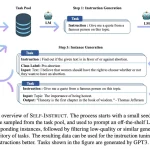An emotional intelligence leader can establish an environment which fosters teamwork and fosters innovation within their company.
Emotional intelligence encompasses several skills, such as self-awareness, self-regulation, empathy and social skill.
An effective leader with strong emotional intelligence (EQ) can effectively manage conflict, motivate employees and foster trustful relationships between leaders and their teams. In addition, they’re capable of adapting their leadership style accordingly for various personalities within their team.
Managing Conflict
Leaders need to know how to effectively handle conflicts in order to meet their goals and motivate employees and colleagues effectively. Leaders should understand employee emotions while communicating effectively for maximum productivity and motivation.
Studies have demonstrated the significance of early resolution of workplace conflicts as they can hinder productivity and teamwork. Managers must establish safe channels through which employees feel free to express their worries or request assistance from managers.
Emotionally intelligent leaders possess the tools needed to diffuse conflict and make sure everyone has their say. Such leaders create an atmosphere where employees feel safe taking calculated risks and offering suggestions.
Conflicts will always arise in the workplace, but emotionally intelligent leaders know how to effectively manage them. They recognize when things have gone too far, and then act quickly in ways that benefit all team members involved.
Motivating Employees
Employee motivation is one of the cornerstones of business success, having an enormous effect on productivity and overall profitability.
Leaders need to recognize what motivates their employees and use this knowledge to inspire them. Furthermore, leaders should recognize individual needs and values to provide employees with all of the support needed for success.
Leaders can boost employee motivation by strengthening relationships among team members and managers, leading to increased loyalty and an improved work environment.
Emotional intelligence (EQ, for short) is an indispensable leadership trait that can be developed. EQ allows leaders to collaborate effectively with their teams while identifying individual strengths and opportunities for improvement, as well as respond quickly to employee emotions.
Building Strong Relationships
Leaders With High Emotional Intelligence Business leaders who possess high emotional intelligence (EQ) are more capable of connecting with and leading their teams effectively. Additionally, these leaders know how to resolve conflict efficiently while creating an ideal work environment in which employees feel engaged and retained.
Emotional intelligence in business leaders can be an invaluable asset to businesses of any size. It includes self-awareness, social awareness and relationship management skills that contribute to optimal business results.
Enhance your emotional intelligence (EQ) through regular self-reflection, learning to manage emotions effectively, and seeking feedback from those you interact with.
Empathy, the capacity to understand and share others’ emotions, is also essential in developing successful leadership.
Building strong relationships takes effort, but it is achievable. One effective method for doing this is through active listening – an essential practice for building trust and cultivating an efficient work culture.
Taking Risks
One of the key skills for business leaders is being able to take calculated risks. Whether it is taking risks with clients, trying out something new at work or exploring entrepreneurial ventures, being able to take calculated risks could make all the difference between success and failure.
Leaders who can successfully take calculated risks can serve as excellent role models for employees. By understanding and respecting each person in their team, these leaders ensure their teams feel safe to take calculated risks without fear.
Although every attempt should be made to prevent workplace incidents from happening, accidents still do happen. Therefore, organisations must cultivate an effective safety culture, encouraging their staff to complete health and safety training, conduct risk analyses, and make sure they have appropriate insurance in place.












